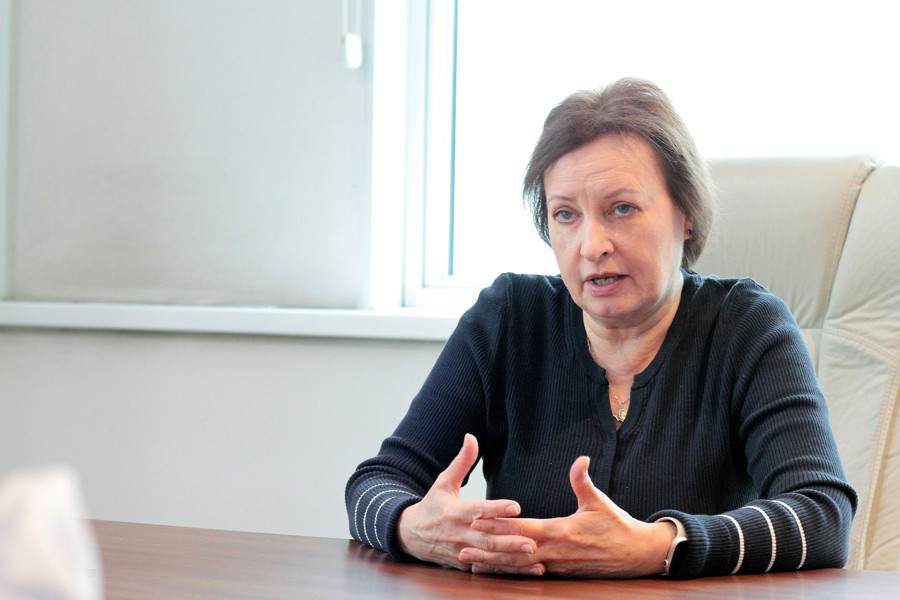Business Ombudsman Rustam ZHURSUNOV:
IT IS NOT EASY NOW FOR BUSINESS TO STAY AFLOAT

In Kazakhstan, during the state of emergency and quarantine, most businesses ended up in tough conditions of prohibitions and restrictions, which negatively affected all aspects of their activity. Business Ombudsman Rustam ZHURSUNOV talked in an interview with Interfax-Kazakhstan with what requests entrepreneurs approached, how their issues were resolved, what proposals were directed towards a holistic approach to solving the problems of Kazakhstan’s business.
- Rustam Manarbekovich, please tell us how did the number of requests from business increase during the state of emergency and quarantine? What requests did mainly entrepreneurs approach with?
- To date, according to all sources, the number of requests has reached 44,586. Whereas 60% of businessmen have complained that they had to violate contractual obligations. So, in the sphere of employment, 54% of business executives are forced to send staff on indefinite unpaid leave or provide part-time work, and 20% - have to cut their staff. Problems that affect the business financial situation are rents, payroll and utility payment obligations.
Including, obligations to the call center, which worked overtime until 10 pm, 10,577 calls were received during the period of emergency and quarantine, of them 43% concerned the movement restrictions subject.
Hereto in Q1 2020 we were in receipt of 1,059 requests direct in order to address business issues with the government bodies. Most complaints for Q1 2020 concerned the following areas: administrative barriers - 13%-, lawmaking activity - 11%, taxation - 10%, land issues - 8%, procurement - 7%.
By and large, in 2019 4,854 requests were received by the Office of Kazakhstan’s Commissioner for the Protection of the Rights of Entrepreneurs.
- What were the most pressing topics on requests during the state of emergency and quarantine from entrepreneurs regarding their rights violations?
- There were many requests from entrepreneurs to include their enterprises in the list of companies whose activities are permitted under emergency conditions. Actually every second request concerned this issue, requests came in from across all types of activity. Business also asked for assistance in obtaining passes for staff and vehicles to move within quarantine zones. Enterprises point out that they are ready to bear responsibility for their staff health and guarantee that all necessary personal protection equipment is provided to staff.
They approached with a problem of providing work permits with regard to accompanying types of activity. For example, if selected companies are allowed to work, then suppliers of products, raw materials, materials, and service companies ask for a similar permit.
Also, fixing capped prices for essential consumer goods raised a lot of questions among entrepreneurs. Then purchase prices, which can be higher than the maximum allowable price, were not taken into account. For example, the purchase price for Adal butter is 3,856 tenge, but the fixed maximum price is 2,667 tenge.
In addition, there was a problem of obtaining quotas for wheat exports outside Kazakhstan. Only those companies, which shipped wheat from grain elevators and used grain receipts received a quota. There were many requests from exporters with the aim of revising the quota issuing principles by the Ministry of Agriculture for all entrepreneurs specializing in exports.
Numerous requests were from various spheres — non-governmental organizations, large service and production companies, research centers and others — to be included in the list of affected industries for further obtaining benefits from government support measures. All requests from entrepreneurs found a receptive ear, the Kazakh government backed a number of our proposals on providing additional support measures to entrepreneurs.
- What proposals on providing state support measures for entrepreneurs did you submit?
- From March 20 to April 30, 2020, 27 initiative letters were submitted by me to the Kazakh government, Parliament and state bodies to address business problems, of them 14 were backed , three were partially backed, 13 are under examination and three were not backed.
So, for example, the deferral of payment of all types of taxes and other obligatory payments, social payments has been granted until June 1 this year for micro-, small or medium-sized business enterprises.
During the state of emergency in Kazakhstan, 11,000 participants in foreign economic activity received the opportunity to defer the payment of VAT on goods imports from April 28 with the support of the State Revenue Committee of the Finance Ministry.
At the final meeting of the State Emergency Commission the head of state backed and approved our initiative regarding the expansion of the list of sectors of the economy for which banks and other financial organizations provide the deferral of loan repayments. Earlier on this list of industries was far from exhaustive. It contained only industries , legal entities of which were forced to suspend their operation . However, there were no production sectors at all that generate the most tax contributions and provide for significant employment such as manufacturing, agriculture, construction sectors.
As a result of the work done, the list has been expanded to 11 sectors of the economy. Now the list includes the following sectors of the economy: manufacturing, wholesale and retail trade, transport and warehousing, accommodation and catering services, real estate operations, professional, scientific and technical activities, activities in the field of administrative and support services, education, healthcare and household social services, arts, entertainment and recreation, other services.
Our proposal to provide a deferral for the submission of statistical statements to all business entities for the emergency period across the country was considered by the Statistics Committee of the Ministry of National Economy. The deferral is not backed. But in the case of untimely submission of statistical statements businesses will not be held administratively liable.
Whereas the issue of retail trade entities in the regions and cities is being decided by a task force with the assistance of regional chambers individually. So, the issue of securing unhindered access of farmers for field work, provided that relevant sanitary and epidemiological norms are observed, was solved.
A letter was also sent to Kazakhstan’s Committee for the Regulation of Natural Monopolies concerning the provision of benefits to business entities with regard to [public] utility payments. Committee backed these proposals provided that the regional chambers of entrepreneurs are actively involved. To this end, the Office of the Commissioner for the Protection of the Rights of Entrepreneurs sent out a relevant instruction to the Regional Chambers of Entrepreneurs to nominate candidates and take part actively in this work. Efforts are underway in this area.
In principle, the country's leadership has responded to most business problems. No matter how many support measures the state provides, it is not easy now for business to stay afloat. There will no longer be such a situation that the lockdown ends and all issues will be resolved at once. A lot will change. For example, what requirements for workplaces, business processes will be. These changes will be about even how often it will be necessary to desinfect the table surface, how to move on transport, how to stand in line in the post-crisis period. All this needs to be reviewed. One should understand that the consequences will be, and they may drag on. Everything depends on the behavior of the economy. If recovery happens quickly, everything will be settled then in 2021, if it drags on, then we will be in the process of overcoming even until 2022-2023.
The most important thing is discipline. Many companies have already reformatted themselves . Whenever possible, it is necessary to go online and develop this area. If foreign markets have shrunk and there is no demand, then it will be necessary to look at the domestic markets and adapt to the current reality.
- In your opinion, on what issues should legislative amendments be addressed in order to improve the situation with doing business in Kazakhstan?
- Despite ongoing systematic efforts aimed at improving the state regulation of entrepreneurship in the country and the clarity of determining the policy priorities in the field of entrepreneurship development, there are still a number of significant problems as the government regulation of entrepreneurship is still a legacy of the repressive system. The system is saturated with distrust of private initiative tooled for repressive regulatory instruments.
To this end , on the instruction of the head of state, we plan to devise optimal approaches to modern “smart” regulation during the three-year moratorium on checks on micro and small business enterprises. During this time, the entire regulatory field, which is based on 4 pillars: requirements, reporting, system of checks, licenses and permits, should be rewritten from scratch.
The efforts should be aimed at the revision and comprehensive analysis of absurd and outdated requirements that were established yet in the Soviet times, as well as all forms of accounting and streamlining the right audit system. Modern standards, understandable for both business and government bodies, and an appropriate audit system are expected to come up as a result.
- Please tell us through the situation with protecting our entrepreneurs’ rights in the other countries.
- Firstly, Kazakhstan is a party to international conventions on legal assistance [signed] by many states, in the first place by the CIS countries. This means that our citizens and entrepreneurs enjoy the same rights and obligations as the residents of these countries. This is the foundation of relationships.
Secondly, we have established relations with the business ombudsmen of Russia, Uzbekistan, and Georgia. Most frequently our businessmen face difficult situations on the territory of Russia and Uzbekistan. My foreign colleagues provide support for Kazakhstani entrepreneurs in these countries at my request. We actively involve in such matters the Kazakh embassies to the foreign countries and the Consular Service of the Ministry of Foreign Affairs.
Thirdly, we study international experience, in particular, closely follow the activity of my colleagues in the developed countries. This is about the countries that top the Doing Business, Transparency International ratings. These are the leaders we should be oriented towards and implement their most successful practices in our country.
- Thank you for the interview!
May, 2020
© 2026 Interfax-Kazakhstan news agency
Copying and use of these materials without reference to the source is prohibited
Archive





